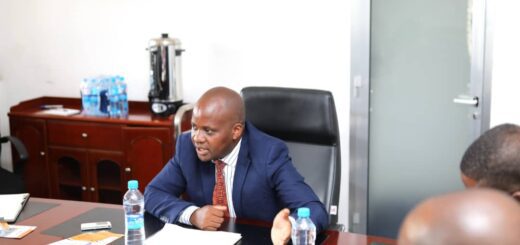Over 5,700 People To Benefit From World Vision’s K18.5 Million Manga Solar Micro-Grid
World Vision Zambia, has handed over a 58-kilowatt Solar Micro-Grid under the Chikwa WASH-Energy Project to the Ministry of Energy and Manga Community, in Chama district, Eastern Province.
The K18.5 million Solar Grid, has been made possible with support from World Vision United States, Private Donors and Chikwa Parish, marking a significant step towards addressing energy and water challenges in rural Zambia.
The project is aimed at addressing the current water and energy deficit, worsened by the recent El Nino droughts that have negatively impacted Zambia’s energy and water sectors.
Speaking during the handover ceremony, World Vision Zambia National Director Marc Nosbach said the project will lead to improved health and overall well-being of 5,762 people.
Mr. Nosbach stated that the Manga Solar Micro-Grid also serves as a lifeline to Manga Primary School, supporting its 382 learners, teachers and the community with clean water.
“This Solar Micro-Grid ensures that the Manga Health Care Facility operates efficiently, creating a safe and dignified environment for patients and staff.”
“Expectant mothers will now give birth in a safe, dignified environment with reliable lighting and Health workers will have well-lit spaces to perform their critical work, even at night,” Mr. Nosbach stated.
He added that the solar grid bridges the educational gap as learners will now have access to computers, and be able to put into practice what they learn, which will open doors to a world of technology and broader learning opportunities.
“The Solar Micro-Grid, one of four planned under the project, directly supports World Vision Zambia’s goal to improve the well-being of 1.5 million children by 2025. Clean, running water will now be available 24/7, addressing a fundamental need for health and child well-being,” he added.
Mr. Nosbach further said the project aligns with Sustainable Development Goals Number 6 and 7, focusing on clean water and sanitation, and affordable, clean energy for all.
“This development further enables communities to engage into income generating activities through gardening and small businesses will now have the much-needed power to grow with consistent water supply for irrigation, increasing agricultural yields and reducing dependency on rain-fed farming. This ensures year-round farming and sustained source of income,” Mr. Nosbach asserted.
Zambia, like many Southern African nations, has suffered significantly from the El Nino-induced drought, impacting 94 of its 116 districts.
This crisis has highlighted the urgent need for sustainable energy solutions to ensure reliable access to clean water.








